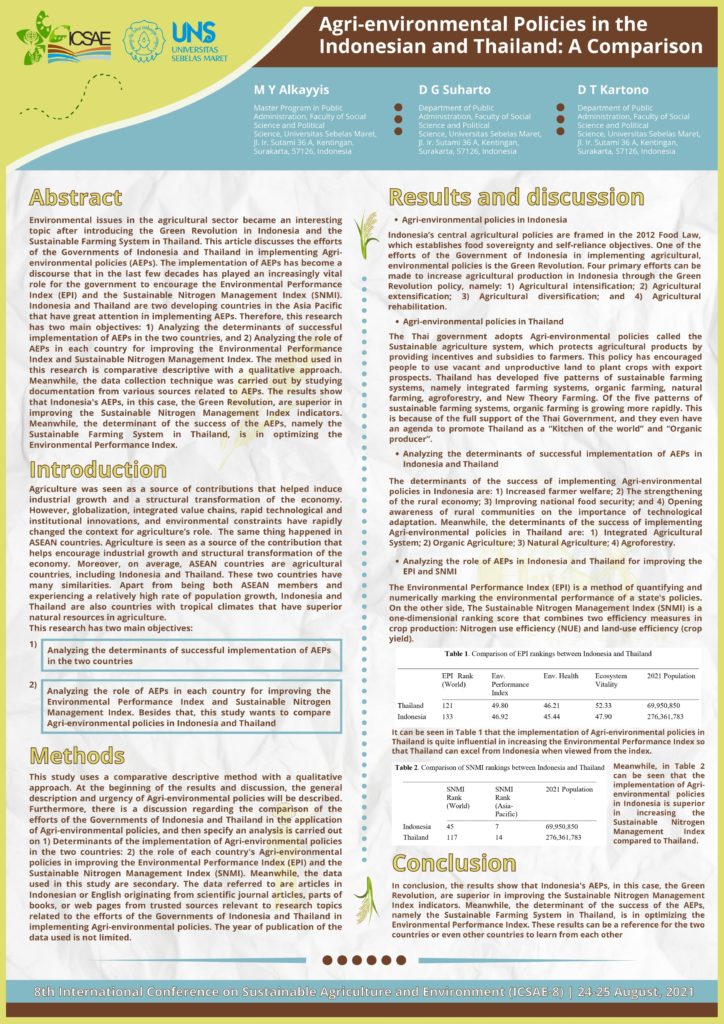Paper ID: 218
Agri-Environmental Policies in the Indonesian and Thailand: A Comparison
M Y Alkayyis1*, D G Suharto2 and D T Kartono2
1Master Program in Public Administration, Faculty of Social Science and Political Science, Universitas Sebelas Maret, Jl. Ir. Sutami 36 A, Kentingan, Surakarta, 57126, Indonesia
2Department of Public Administration, Faculty of Social Science and Political Science, Universitas Sebelas Maret, Jl. Ir. Sutami 36 A, Kentingan, Surakarta, 57126, Indonesia
Email : yourialkayyis@student.uns.ac.id
Environmental issues in the agricultural sector became an interesting topic after introducing the Green Revolution in Indonesia and the Sustainable Farming System in Thailand. This article discusses the efforts of the Governments of Indonesia and Thailand in implementing Agri-environmental policies (AEPs). The implementation of AEPs has become a discourse that in the last few decades has played an increasingly vital role for the government to encourage the Environmental Performance Index (EPI) and the Sustainable Nitrogen Management Index (SNMI). Indonesia and Thailand are two developing countries in the Asia Pacific that have great attention in implementing AEPs. Therefore, this research has two main objectives: 1) Analyzing the determinants of successful implementation of AEPs in the two countries, and 2) Analyzing the role of AEPs in each country for improving the Environmental Performance Index and Sustainable Nitrogen Management Index. The method used in this research is comparative descriptive with a qualitative approach. Meanwhile, the data collection technique was carried out by studying documentation from various sources related to AEPs. The results show that Indonesia’s AEPs, in this case, the Green Revolution, are superior in improving the Sustainable Nitrogen Management Index indicators. Meanwhile, the determinant of the success of the AEPs, namely the Sustainable Farming System in Thailand, is in optimizing the Environmental Performance Index.
